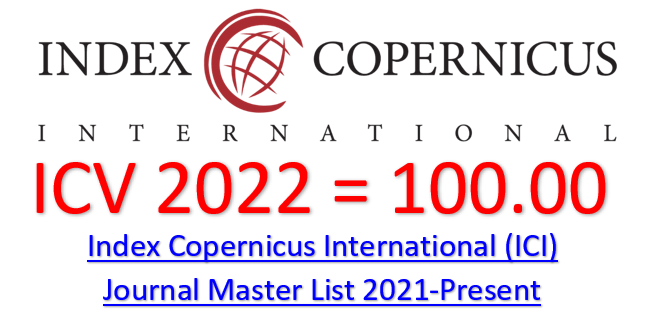Optimization Of Islamic Counseling And Understanding Of Well Being in Reducing Anxiety and Stress In Face-To-Face Learning After The Covid-19 Pandemic
DOI:
https://doi.org/10.55018/janh.v4i1.60Keywords:
Islamic Counseling, Well Being, Anxiety, Stress, COVID-19Abstract
Background: This paper aims to find out the influence of Islamic counseling and understanding of the concept of well-being on reducing anxiety and stress in student guardians since the start of face-to-face learning after the decline of the Covid-19 emergency..
Methods: This research is quantitative research with a quasi-experimental approach. A total of 32 respondents were taken using convenience sampling
Results: Understanding wellbeing showed a decrease in anxiety rate of 14.5%, while stress showed a 12.7% decrease. Islamic counseling showed a decrease in anxiety rate of 17.8%, while stress showed a 16.4% decrease. Student guardians given both treatments, Islamic counseling, and well-being comprehension showed a 12.7% reduction in anxiety and a 7.08% reduction in stress. The results showed that Islamic counseling is significantly more beneficial in lowering anxiety and stress than providing an understanding of wellbeing.
Conclusion: The provision of Islamic counseling in this study showed more success rates in reducing anxiety and stress in student guardians compared to providing an understanding of the concept of wellbeing. The decrease in anxiety and stress was higher indicated by subjects who received both treatment, Islamic counseling, and the provision of understanding of the concept of wellbeing
Downloads
References
Islamic counseling supports a problem and is carried out following the rules of Islamic teachings. At the same time, well-being understanding provides information on comfort in a situation without further assistance. The provision of Islamic counseling in this study showed more success rates in reducing anxiety and stress in student guardians compared to providing an understanding of the concept of wellbeing. The decrease in anxiety and stress was higher indicated by subjects who received both treatment, Islamic counseling, and the provision of understanding of the concept of wellbeing.
References
Abdurrahman. (2019). Fungsi dan Peran Konseling Islam Dalam Pendidikan. Jurnal Bimbingan Dan Konseling Islam, 3(1).
Afifa, A., & Abdurrahman, A. (2021). Peran Bimbingan Konseling Islam dalam Mengatasi Kenakalan Remaja. Islamic Counseling : Jurnal Bimbingan Konseling Islam, 5(2), 175. https://doi.org/10.29240/jbk.v5i2.3068
Akhmadi, A. (2016). PENDEKATAN KONSELING ISLAM DALAM MENGATASI PROBLEMA PSIKOLOGIS MASYARAKAT. Jurnal Diklat Keagamaan, 10(4).
Alwi, S. (2018). PENDEKATAN DAN METODE KONSELING ISLAMI. ITQAN, 9(2).
Arroisi, J. (2019). Bahagia dalam Perspektif al-Ghazali. Kalimah: Jurnal Studi Agama Dan Pemikiran Islam, 17(1), 89. https://doi.org/10.21111/klm.v17i1.2942
Asrori, A. (2015). Terapi Kognitif Perilaku Untuk Mengatasi Gangguan Kecemasan Sosial. Jurnal Ilmiah Psikologi Terapan, 3(1).
Atmadja, K., & Kiswantomo, H. (2020). Hubungan antara Komponen - Komponen Subjective - Well Being dan Internet Addiction. Humanitas (Jurnal Psikologi), 4(1), 27–42. https://doi.org/10.28932/humanitas.v4i1.2285
Desi, Tomasoa, S. J., & Soegijono, S. P. (2017). Well-being: Studi Sosiodemografi di Ambon. Jurnal Keperawatan Muhammadiyah, 2(2).
Dewi, L., & Nasywa, N. (2019). Faktor-faktor yang mempengaruhi subjective well-being. Jurnal Psikologi Terapan Dan Pendidikan, 1(1).
Fitria, L., & Ifdil, I. (2020). Kecemasan Remaja Pada Masa Pandemi Covid-19. Jurnal EDUCATIO (Jurnal Pendidikan Indonesia), 6(1).
Habibi, ,. (2016). Ilmu Dan Eksistensi Kebahagiaan Menurut Al-Ghazali. Dirosat : Journal of Islamic Studies, 1(1), 75. https://doi.org/10.28944/dirosat.v1i1.4
Hartato, I., Basaria, D., & Patmonodewo, S. (2017). TERAPI WELL-BEING UNTUK MENINGKATKAN PSYCHOLOGICAL WELL-BEING PADA REMAJA YANG TINGGAL DI PANTI SOSIAL BINA REMAJA X. Jurnal Psikologi Psibernetika, 10(1).
Kuliyatun. (2020). BIMBINGAN DAN KONSELING ISLAM DALAM MENINGKATKAN RELIGIUSITAS SISWA SEKOLAH MENENGAH ATAS (SMA). Jurnal Bimbingan Penyuluhan Islam, 2(1).
Manita, E., Mawarpury, M., Khairani, M., & Sari, K. (2019). Hubungan Stres dan Kesejahteraan (Well-being) dengan Moderasi Kebersyukuran. Gadjah Mada Journal of Psychology (GamaJoP), 5(2), 178. https://doi.org/10.22146/gamajop.50121
Masruroh, L., & Milah, I. (2021). KONSEP KEBAHAGIAAN MENURUT ISLAM DAN PSIKOLOGI (Studi Komparasi Pemikiran Al-Ghazali Dan Erich Fromm). Journal Fakultas Agama Islam Universitas Wiralodra.
Mukhlas, & Sofiani, I. K. (2021). Landasan Teori Konseling Islam َ. Kaisa: Jurnal Pendidikan Dan Pembelajaran, 1(1), 25–37.
Mukholil. (2018). KECEMASAN DALAM PROSES BELAJAR. Jurnal Eksponen, 8(1).
Ng, E. C. W., & Fisher, A. T. (2013). Understanding Well-Being in Multi-Levels. Health, Culture, and Society, 5(1).
Nur, L., & Mugi, H. (2021). Tinjauan Literatur Mengenai Stres Dalam Organisasi. Ilmu Manajemen, 18(1), 20–30.
Tov, W. (2018). Wellbeing Concepts and Components. Nobascholar.
Tualeka, M. W. N. (2020). Kebahagian dalam Perspektif Al-Ghazali Menyongsong Masyarakat Industri 4.0. Al-Hikmah: Jurnal Studi Agama-Agama, 6(2).
Zulkarnain, & Fatimah, S. (2019). Kesehatan dan Mental dan Kebahagiaan: Tinjauan Psikologi Islam. Mawa’izh, 10(1).
Downloads
Published
How to Cite
Issue
Section
License

This work is licensed under a Creative Commons Attribution-ShareAlike 4.0 International License.

























